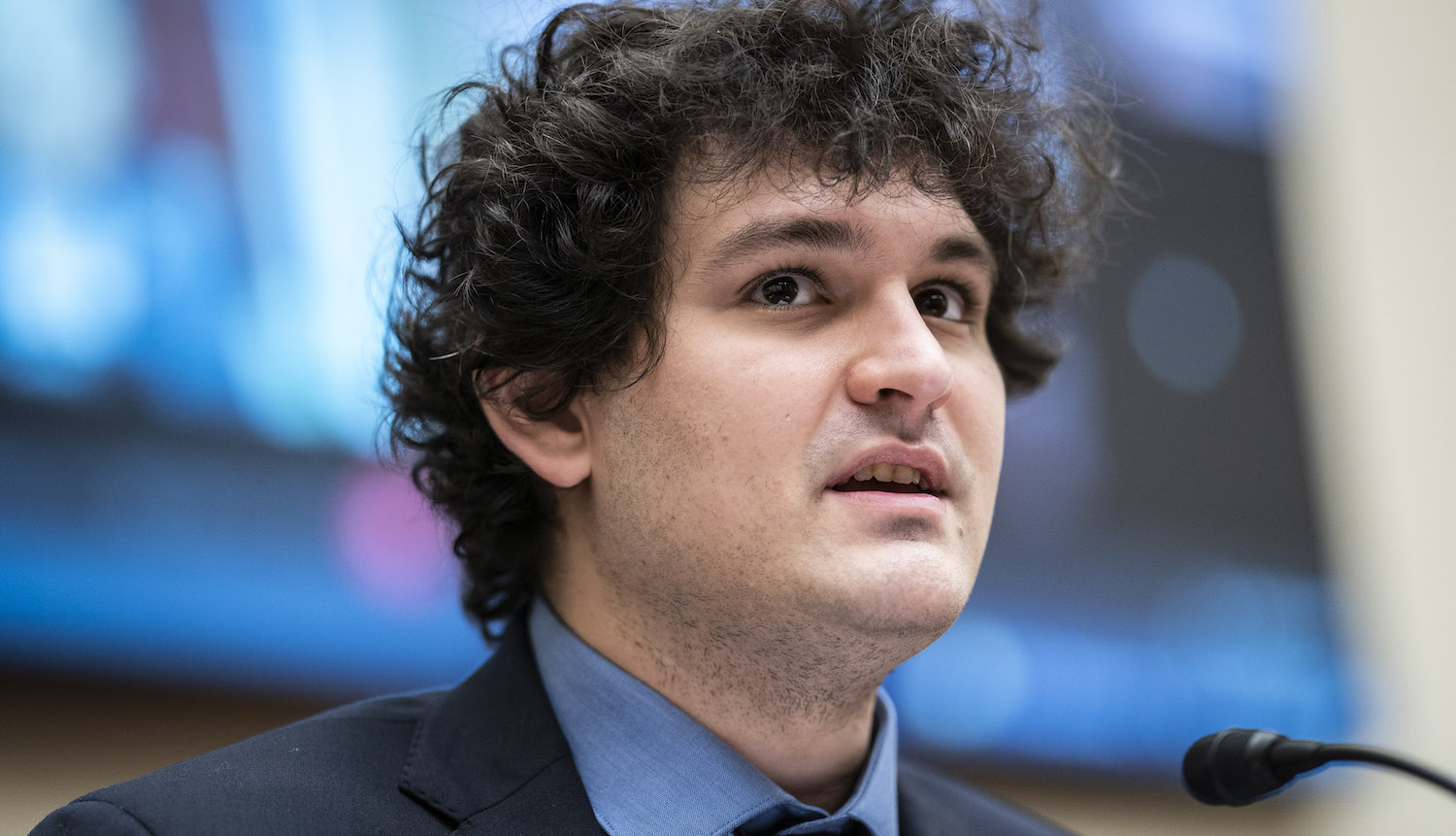Hours before he was scheduled to give testimony to Congress on Tuesday morning about the collapse of his big stupid cryptocurrency exchange FTX, Sam Bankman-Fried was arrested by Bahamian authorities, on behalf of the U.S. government, at his luxury apartment in New Albany. Bankman-Fried is likely to be extradited back to the United States, where he has been charged with wire fraud, wire fraud conspiracy, securities fraud, securities fraud conspiracy, and money laundering by the U.S. Attorney for the Southern District of New York and the Securities and Exchange Commission.
Earlier this year, Bankman-Fried was valued around $20 billion thanks to his ownership of FTX and the crypto hedge fund Alameda Research, and received the sort of awestruck attention that very young and very rich tend to receive in the media. Roughly one month ago, though, his empire abruptly dissolved into sand. A planned last-second rescue of FTX by rival exchange Binance fell through (more on this later) and instead of owning an 11-figure company or being bought out for some smaller number of billions of dollars, Bankman-Fried was forced to shutter FTX and file for Chapter 11 bankruptcy. Troubling reports emerged in the subsequent weeks, portraying FTX and Alameda Research not as distinct entities but intertwined companies run by a "cabal of roommates" who were living with and sometimes dating each other in the Bahamas.
Up until his collapse, Bankman-Fried had successfully cultivated a glowing public image. He embodied the geeky, socially maladroit genius persona that tech-friendly media have been conditioned to think of as inherent to every visionary, and rather than convince the smartest and richest people in the room that he was an unserious kid looking to make as much money as possible, his schlubbiness and disruptive League of Legends-playing somehow instead served as proof that he was actually too smart to have to care about social niceties, and certainly smart enough not to be second-guessed by skeptics. The definitional Ponzi scheme that he set up was enabled by a fawning class of VC investors, legitimized by all the sports stars and public figures who cut what are now some truly embarrassing ads for FTX, and justified by Bankman-Fried's lifelong adherence to Effective Altruism, a utilitarian prosperity gospel described by Noah Kulwin in the Baffler as a self-serving philosophy "in which categorical moral claims are applied to everything except for systems of political economy."
The substance of the SDNY and SEC's complaints is fairly straightforward: they contend that FTX's vast pool of customer funds essentially served as a bank for Alameda Research, allowing them to make a bunch of risky bets that went bust when the crypto market flopped in the back half of 2022. "From the start, contrary to what FTX investors and trading customers were told," reads the SEC complaint, "Bankman-Fried continually diverted FTX customer funds to Alameda and then used those funds to continue to grow his empire, using billions of dollars to make undisclosed private venture investments, political contributions, and real estate purchases." They go into some detail on that contention, but that's basically it.
As it happens, we actually know what Bankman-Fried's rebuttal will be, since Forbes obtained a transcript of his planned remarks to Congress. It begins, "I would like to start by formally stating, under oath: I fucked up." Bankman-Fried lists the distinct ways in which he says he fucked up, most of which boil down to him regretting that he didn't properly manage the riskiness of Alameda's investments and that he stopped working 18-hour days, which somehow meant that FTX degraded without his oversight. He denies shuttling money between FTX and Alameda, and claims that FTX is solvent and could make the customers currently unable to access their accounts whole right now. He spends most of his time in that testimony going in on the Chapter 11 team that took over FTX and is running the bankruptcy process. He also admitted that FTX did not have a risk management team. Bankman-Fried says Binance (now facing similar problems of their own) was never serious about trying to rescue FTX, blames Binance CEO Changpeng "CZ" Zhao for driving FTX to ruin, and says that their non-binding letter of intent to take over FTX was merely a diversion intended to prevent anyone from rescuing them.
The juiciest detail is that Bankman-Fried says a multi-billion dollar offer came in minutes after he signed the Chapter 11 papers, an offer he says the Chapter 11 team ignored and then spurned once he signed the company over. His position is that John Ray and the lawyers currently managing the end of FTX are only in this to collect extravagant fees and have no interest in FTX as a going concern, nor any interest in making its customers whole. "I have 19 pages of screenshots of Sullivan & Cromwell, Mr. Miller, and others I believe were influenced by them, all sent over a two day period, pressuring me to quickly file for Chapter 11," he planned to say before Congress. "They range from adamant to mentally unbalanced. They also called many of my friends, coworkers, and family members, pressuring them to pressure me to file, some of whom were emotionally damaged by the pressure. Some of them came to me, crying."
Ray spoke to Congress on Tuesday, characterizing FTX and Alameda's relationship as "old-fashioned embezzlement," expressing his bafflement that they did all their accounting in QuickBooks, and saying there was "nothing sophisticated about [the fraud]." A battle is clearly brewing between Ray's Chapter 11 team and Bahamian authorities, who worked closely with Bankman-Fried and, per Bloomberg, tried to get him to "mint new digital coins worth hundreds of millions of dollars and then transfer those tokens to the control of island officials." Ray's team also accused island authorities of getting illegal access (probably from Bankman-Fried) to FTX ledgers and draining $100 million for themselves. That fight is going to play out over the course of months, if not years, though the arrest of Bankman-Fried and his likely extradition will probably speed things up.
Everyone, including Bankman-Fried, seems to have been surprised at how suddenly he was arrested. He gave an interview (while actively gaming) to the YouTube channel Unusual Whales on Monday, and when asked if he was worried about being detained, he said, "Uh, I don’t believe I would be, but I haven’t done a, like, deep dive into that. That’s something I have to think harder about." These cases usually take months to build, which has sparked a conspiracy theory from the dumbest people alive that Bankman-Fried was swiftly arrested by the Democratic Party authorities, for whom he was purportedly doing shady Ukraine things, in order to keep him from naming names.
This ignores the facts that Bankman-Fried attempted to buy immunity from regulation from both parties, and, more crucially, that he was willing to talk to anyone, anytime, about anything. The man showed up to the New York Times' Worst People In The World conference weeks after FTX died, and was getting silly in the DMs with all kinds of people. Shutting up is not really something he ever did very well, or for very long. Rather, the Times reported that the sped-up timeline means that someone probably flipped on Bankman-Fried. His arrest already represents the stiffest consequence that a big-time crypto executive has faced for fraud; here's hoping that mark won't stand for long.





